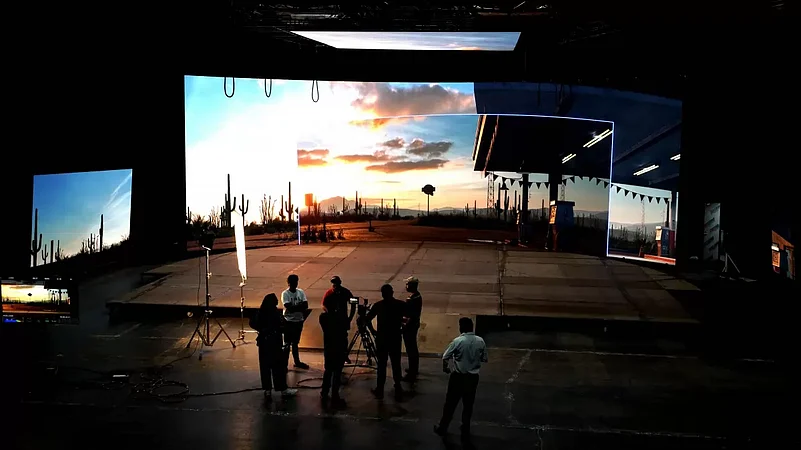Virtual production, a new technology in cinema, eliminates the need to shoot on locations. Unlike chroma keying, where actors perform against a green (or a blue) screen, virtual production helps project photorealistic and dynamic backdrops on a giant LED screen, enabling astounding world-trotting possibilities. It’s already become a potent force in Hollywood, marking such films and web series as 'The Mandalorian' (2019), 'Avengers: End Game' (2019), 'Barbie' (2023), and many others. It’s begun to impact the Indian film industries as well, with several virtual production studios popping up in the country in the last few years. But it also prompts crucial concerns: of job losses (to both production designers and below-the-line workers) and pixels drowning out fleeting fragments of realism in cinema. Outlook’s latest issue unpacks this new technology and examines what the transition from celluloid to digital cinema mean for filmmaking and film-consumption culture?
Outlook also looks at the Supreme Court’s endorsement of the abrogation of Article 370 and what was the judicial reasoning behind the move. What does it mean for the statehood of Jammu and Kashmir and how large would its implications be on other Indian states? The 2019 action, hailed as a “historic one”, has been further upheld by the SC judgment on December 11. However, it opens doors to several questions and concerns in India’s federal structure.






















